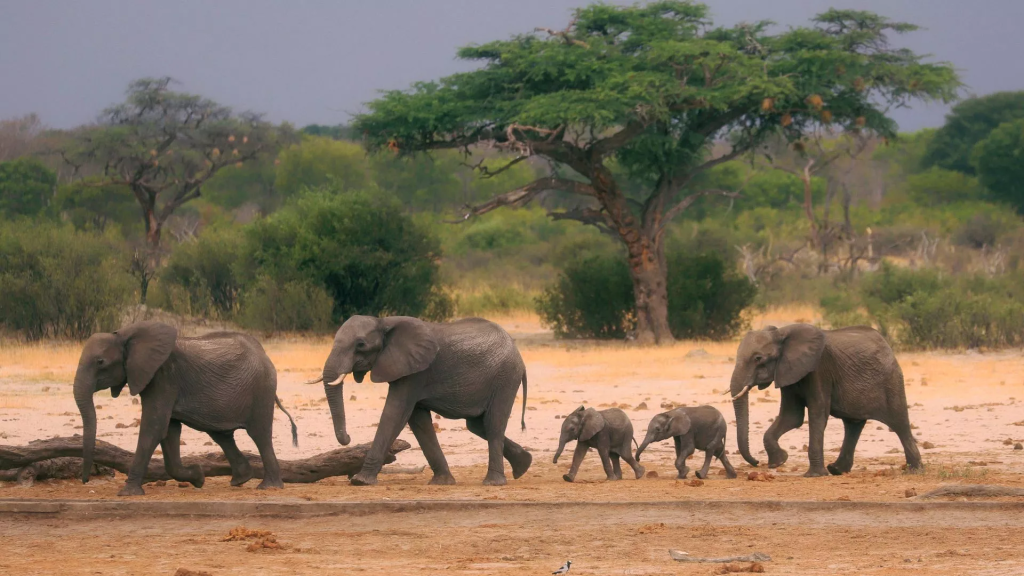In Zimbabwe, the elephants will be taken from an area where the population has become unsustainable.
Zimbabwe and Namibia have announced plans to slaughter hundreds of wild elephants and other animals to feed hunger-stricken residents amid severe drought conditions in the southern African countries.
Zimbabwe said on Monday it would allow the killing of 200 elephants so that their meat can be distributed among needy communities, while in Namibia the killing of more than 700 wild animals – including 83 elephants – is under way as part of a plan announced three weeks ago.
Tinashe Farawo, a spokesman for the Zimbabwe National Parks and Wildlife Management Authority, said permits would be issued in needy communities to hunt elephants and that the agency also would kill some of the overall allotment of 200 animals.
“We will start culling as soon as we have finished issuing out permits,” Farawo said.
Zimbabwe’s elephant populations have become unsustainable
The elephants will be taken from an area where the population has become unsustainable, Farawo said. The hunting will take place in areas such as Hwange National Park in the country’s arid west where there has been increasing competition between humans and wildlife for food and water as rising temperatures make the resources more scarce.
Hwange has more than 45,000 elephants, but now has the capacity to sustain only 15,000, Farawo said. The country’s overall population of about 100,000 elephants is double what the country’s national parks can sustain, park officials say.

The El Niño weather phenomenon has worsened the situation, with the parks agency in December saying that more than 100 elephants died due to drought. More animals could die of thirst and hunger in the coming weeks as the country enters the hottest period of the year, Farawo said.
Zimbabwe‘s Environment Minister Sithembiso Nyoni told Parliament last week that she had given the go-ahead for the culling program.
“Indeed Zimbabwe has more elephants than we need, more elephants than our forestry can accommodate,” Nyoni said.
She said the government was preparing “to do like what Namibia has done so that we can cull the elephants and mobilise the women to dry the meat, package it and ensure that it gets to some communities that need the protein.”
The El Niño weather phenomenon has worsened the situation, with the parks agency in December saying that more than 100 elephants died due to drought. More animals could die of thirst and hunger in the coming weeks as the country enters the hottest period of the year, Farawo said.
Zimbabwe‘s Environment Minister Sithembiso Nyoni told Parliament last week that she had given the go-ahead for the culling program.
“Indeed Zimbabwe has more elephants than we need, more elephants than our forestry can accommodate,” Nyoni said.
She said the government was preparing “to do like what Namibia has done so that we can cull the elephants and mobilise the women to dry the meat, package it and ensure that it gets to some communities that need the protein.”
Source link : View Article
Author
-

Euro News is Europe's leading international news channel, delivering global, multilingual news with a European perspective to over 400 million households in 160 countries. Offering 12 cross-platform language editions, including 9 distinct TV editions, the channel aims to present diverse viewpoints while maintaining a focus on factual reporting.



